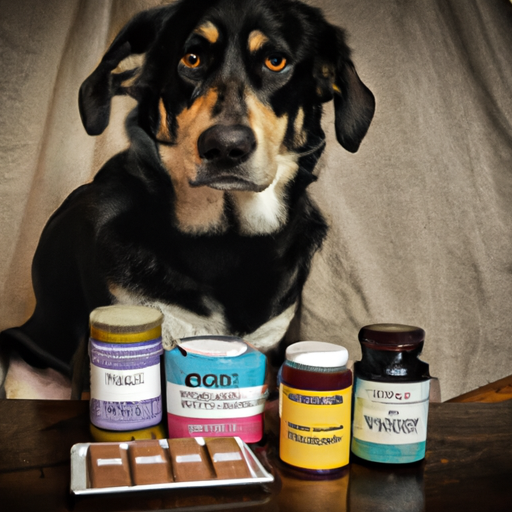For many of us, chocolate is a pleasurable indulgence. From the aroma to the taste, it’s a treat that we often enjoy sharing with loved ones. But when it comes to your furry friend, the question arises: what chocolate can dogs eat? The answer, quite simply, is none. Although this might seem surprising, it’s crucial information for every pet owner. This guide will detail why chocolate is harmful to dogs and what to do if your pet ingests it.
Table of Contents
- Why is Chocolate Toxic to Dogs?
- What to Do If Your Dog Eats Chocolate
- Safe Alternatives to Chocolate
- FAQs
- Conclusion
Key Takeaways
- Chocolate is toxic to dogs and should never be given to them.
- The toxicity of chocolate depends on the type and the weight of the dog.
- Signs of chocolate poisoning include restlessness, increased thirst, abdominal discomfort, and severe agitation.
- If a dog ingests chocolate, a vet should be consulted immediately.
- There are dog-friendly treats that are safe alternatives to chocolate.
Why is Chocolate Toxic to Dogs?
Chocolate is derived from the roasted seeds of Theobroma Cacao, which contain two ingredients harmful to dogs: theobromine and caffeine. Theobromine is especially harmful because dogs metabolize it more slowly than humans. This slow rate can lead to theobromine poisoning, which can be fatal for dogs. The same applies to caffeine, which can cause a range of symptoms from restlessness to tremors and seizures.
The amount of theobromine and caffeine varies in different types of chocolate. Dark chocolate and baking chocolate contain the highest levels, making them the most dangerous for dogs. Milk chocolate and white chocolate contain lower levels of theobromine, but they are still not safe for dogs. For more detailed information on the toxicity of chocolate, the Pet Poison Helpline provides an excellent resource.
What to Do If Your Dog Eats Chocolate
If your dog eats chocolate, it’s essential to act quickly. The first step is to determine the type of chocolate consumed and the amount. Then, call your veterinarian or the Pet Poison Helpline immediately. They can calculate the toxicity level and recommend the next steps.
Signs of chocolate poisoning can take several hours to appear but can last for days due to the slow metabolization. Symptoms can include restlessness, increased thirst, a rapid heart rate, vomiting, diarrhea, tremors, seizures, and even death. If your dog shows any of these signs, seek veterinary help immediately.
Here’s a great article on One Top Dog that provides more details on what to do if your dog eats chocolate.
Safe Alternatives to Chocolate
Although dogs cannot have chocolate, there are plenty of dog-friendly treats available. Consider giving your dog treats made especially for them, like dog biscuits or dog-friendly chews.
You can even make homemade dog treats. Here is a recipe for Peanut Butter and Pumpkin Dog Treats from One Top Dog.
Always remember, moderation is key when giving your dog treats, even dog-friendly ones. Treats should make up no more than 10% of your dog’s daily caloric intake.
Frequently Asked Questions
-
Can a small amount of chocolate kill a dog?
Yes, even a small amount of chocolate can be harmful to dogs. The severity of the toxicity depends on the type of chocolate, the amount consumed, and the size of the dog. -
How long does it take for a dog to get sick after eating chocolate?
Symptoms of chocolate poisoning can appear within 6 to 12 hours after ingestion and can last up to 72 hours. -
What should I do if my dog eats chocolate but seems fine?
Even if your dog seems fine, it’s crucial to contact a veterinarian immediately if your dog has eaten chocolate. The symptoms of chocolate poisoning can take several hours to appear.
Conclusion
As a pet owner, it’s essential to understand that chocolate is toxic to dogs, and even a small quantity can be harmful. Always keep chocolate out of your dog’s reach and educate others in your household about the dangers of chocolate to dogs. Instead, opt for dog-friendly treats to keep your canine companion happy and healthy.
Remember, if your dog ingests chocolate, contact your vet or the Pet Poison Helpline immediately. For more information on dog health and safety, visit One Top Dog.



